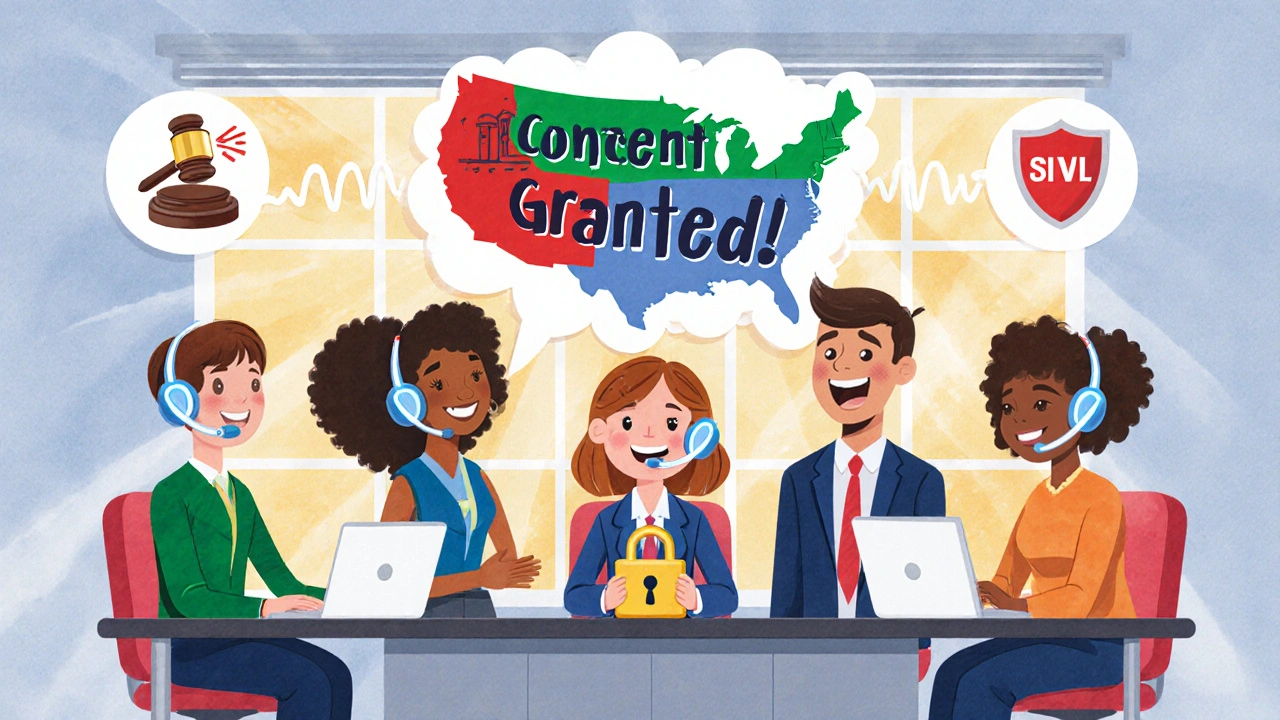TCPA Call Recording: Legal Rules, Compliance, and How to Record Calls Right
When you record a call, you’re not just saving a conversation—you’re handling sensitive personal data. The TCPA call recording, a set of U.S. federal rules under the Telephone Consumer Protection Act that govern how businesses record and use phone conversations. Also known as call recording consent laws, it doesn’t just apply to telemarketers—it hits every business using VoIP, from small clinics to remote sales teams. If you record without proper consent, you could face fines up to $1,500 per call. That’s not a typo. One misstep could cost you thousands.
Most people think TCPA only applies to cold calls. It doesn’t. It covers call recording compliance, the legal process of obtaining permission before recording any phone conversation, whether inbound or outbound in any business context. That includes customer service calls, sales demos, even internal training recordings. The law requires either express written consent or oral consent depending on your state. Some states like California and Illinois demand two-party consent—you must notify everyone on the call, and they must agree. Other states only require one-party consent, but that’s not enough if your caller is in a stricter state. Your VoIP system can’t assume jurisdiction—you have to track it.
That’s why tools like VoIP call recording, software or hardware features built into business phone systems that capture audio from digital calls for quality control, training, or legal protection need to include built-in compliance features. Not every VoIP provider does. Some just hit record and call it good. But compliant systems should: play an automated consent prompt before recording, log who gave consent and when, store recordings securely, and let customers opt out anytime. You can’t just rely on a disclaimer in your website footer. The FCC and courts want clear, active agreement.
And it’s not just about avoiding fines. Proper consent for recording, the legal and ethical practice of informing and obtaining permission from all parties before capturing a phone call builds trust. Customers are more likely to open up if they know the call is being recorded for quality purposes—not to trap them. Many businesses use recording to improve training, spot trends in complaints, or defend against false claims. Done right, it’s a tool for fairness, not fear.
Looking at the posts here, you’ll find real-world guides on setting up recording in VoIP systems, choosing compliant software, and avoiding the hidden traps that catch small businesses off guard. You’ll see how to configure your system to handle multi-state callers, how to store recordings securely, and which providers actually help you stay legal—not just make it easy to break the law. There’s no fluff. Just what you need to record calls without risking your business.
